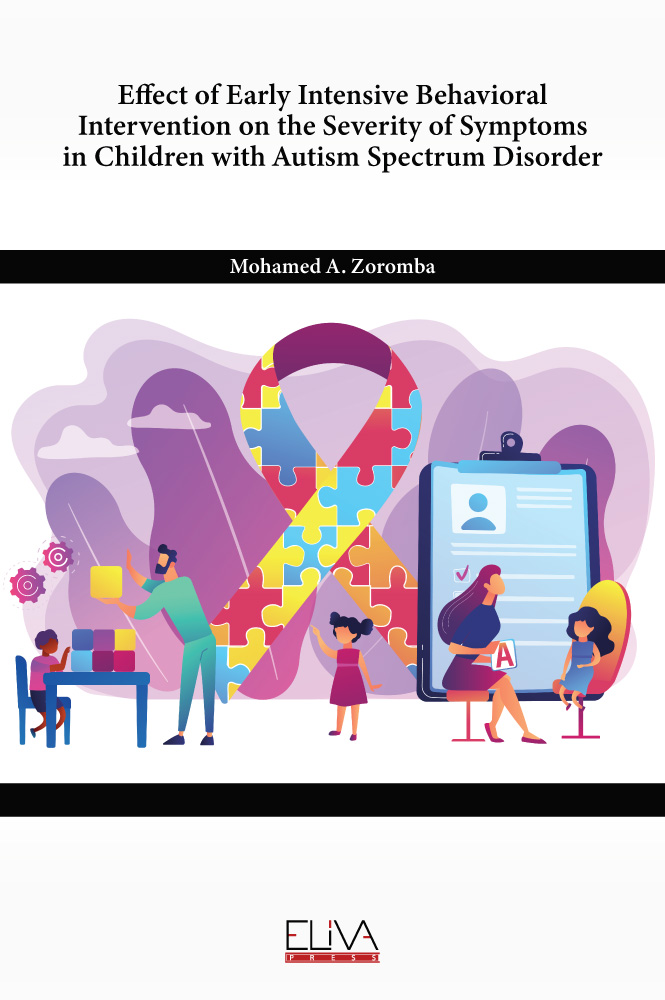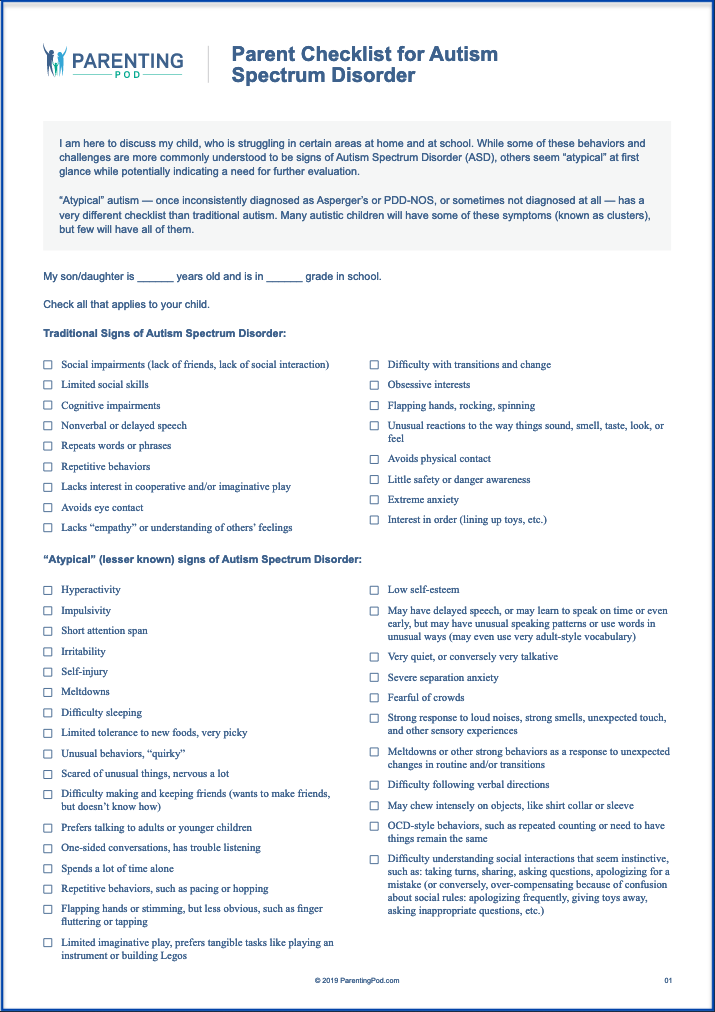Unique abilities often seen by an experienced Autism Therapist
Unique abilities often seen by an experienced Autism Therapist
Blog Article
Secret Signs and Signs And Symptoms to Identify in Individuals With Behavior Autism
When you experience somebody with behavioral autism, acknowledging key indications and signs is vital. You might notice challenges in social interactions and interaction, in addition to a strong requirement for regimens. Additionally, sensory sensitivities can result in frustrating experiences. Comprehending these characteristics can boost your assistance and interventions, however there's more to discover regarding how these behaviors materialize in day-to-day scenarios. Let's explore what these signs actually appear like.
Obstacles in Social Communications
When you engage with somebody on the autism spectrum, you could observe they fight with social hints and interaction. These difficulties can make social interactions really feel frustrating for them. You may see them preventing eye get in touch with or standing too close or too much away throughout discussions, which can create misunderstandings. They may not notice body movement or face expressions, making it harder for them to assess how others are really feeling.
Furthermore, you might discover that they choose routines and acquainted settings, which can limit their willingness to involve in new social situations. They might speak about their rate of interests in great detail without seeing if you're interested when they do engage. This can bring about one-sided discussions that leave you feeling separated. Recognizing these difficulties can aid you come close to interactions with compassion and patience, promoting an extra comfy environment for both of you.
Trouble With Verbal and Non-Verbal Interaction

Recognizing these indicators is vital, as it aids you much better assistance and engage with people on the autism spectrum. By recognizing their interaction obstacles, you can foster a lot more significant connections and offer an extra encouraging atmosphere.
Repetitive Behaviors and Routines
Interaction obstacles frequently accompany various other signs of autism, such as recurring actions and a solid choice for regimens. You could notice that people with autism commonly engage in particular, repeated actions, like hand-flapping, shaking, or repeating expressions. These habits can give comfort and a feeling of control in an usually overwhelming globe.
Regimens are equally vital; lots of people prosper when they adhere to an organized schedule. You might discover that modifications to these regimens can bring about significant distress. For instance, if they have a day-to-day ritual of consuming morning meal at a specific time or adhering to a particular route to school, any kind of interruption can create anxiety.
Recognizing these patterns helps you comprehend their habits and provide assistance. By suiting their need for regular and permitting repetitive actions, you can produce a much more comfy setting that alleviates their challenges.
Sensory Level Of Sensitivities

Typical Sensory Triggers
Sensory sensitivities can significantly affect day-to-day live for people with autism, as particular stimuli commonly cause overwhelming responses. Usual sensory triggers include loud sounds, brilliant lights, and solid scents. You might observe that unexpected audios, like sirens or alarms, create stress and anxiety or distress. In a similar way, fluorescent illumination in shops can really feel uncomfortable and severe. Textures can likewise play a substantial duty; harsh textiles or specific food structures might be excruciating for you. In addition, crowded places can bewilder your detects, making it hard to focus or kick back. Recognizing these triggers can aid you handle your setting much better. By understanding what affects you, you can take steps to reduce discomfort and boost your daily experiences.
Behavioral Feedbacks Discussed
Recognizing your behavior actions to sensory sensitivities is important, as they usually expose exactly how you connect with the world. You may additionally find on your own seeking details sensory experiences, like deep stress or quiet atmospheres, to aid ground yourself. Identifying these patterns aids you recognize your requirements better and can guide just how you communicate them to others.
Coping Techniques Summary
Recognizing your sensory sensitivities is just the very first step; now it's time to explore coping methods that can help you take care of those experiences efficiently. Beginning by creating a sensory toolkit customized to your requirements. This could consist of noise-canceling earphones, fidget toys, or relaxing aromas. Establishing a structured regimen can also provide predictability, reducing stress and anxiety around sensory overload. When you feel overloaded, take breaks in a quiet room to collect yourself. Practicing mindfulness methods such as deep breathing can help ground you in the moment. Additionally, connect your requirements with those around you; having supportive family and friends can make a significant distinction. Keep in mind, locating what functions ideal for you may take some time, so be patient and open to trying new approaches.
Limited Rate Of Interests and Emphasis
While numerous individuals develop a variety of rate of interests, those with autism typically demonstrate restricted interests and an intense focus on particular topics. You may observe that someone with autism can spend hours delving into their favored topic, whether it's a particular type of train, a details flick, or a scientific principle. This intense focus isn't simply a pastime; it can come to be a central component of their identity and social interactions.
You might find that discussions rotate around these passions, and they may battle to engage in wider subjects. By recognizing and acknowledging these limited rate of interests, you can cultivate a supportive atmosphere where they really feel check my blog valued and recognized, permitting for more purposeful links and interactions.
Psychological Regulation Difficulties
Individuals with autism usually deal with obstacles in psychological guideline, which can be influenced by their intense concentrate on particular interests. You may notice that when a person is deeply taken part in a favored activity, they can experience solid emotions, whether enjoyment or stress. This intensity often makes it difficult for them to move gears or handle their sensations when things do not go as intended.

Variability in Developing Milestones
When it concerns developing landmarks, you'll see that people with autism often show a wide variety of irregularity. Some may strike turning points in a timely manner, while others might drag or development at a different pace. You might see a child stand out in language skills but struggle with social interactions. This variance can be complex, as typical standards do not constantly use.
It's vital to identify that each person's journey is distinct. Some may establish intricate abilities early, just to encounter difficulties in the future. Others might take longer to achieve fundamental milestones however then thrive in certain areas. visit Observing these patterns can aid you recognize their staminas and needs much better.
Frequently Asked Concerns
Just How Is Autism Identified in Children and Grownups?
To identify autism in adults and youngsters, experts assess actions, communication skills, and social communications. If an individual meets the standards for autism spectrum condition., they frequently use standardized tests, meetings, and observations to determine.
Are There Various Kinds Of Autism Range Disorders?
Yes, there are different types of autism range conditions, including Asperger's syndrome and pervasive developmental disorder-not or else specified. Each kind varies in intensity and qualities, so recognizing these distinctions can assist you better support people with autism.
What Treatments Work for People With Autism?
When taking into consideration effective therapies for people with autism, you'll locate options like Applied Habits Evaluation, speech therapy, and job-related therapy. Each strategy can help improve interaction, social skills, and everyday functioning tailored to private demands.
Can Individuals With Autism Lead Independent Lives?
Yes, people with autism can lead independent lives. With the best support, abilities training, and resources, you can help them develop self-sufficiency, manage daily jobs, and prosper in numerous environments, promoting their self-reliance.
Just How Can Family Members Assistance Enjoyed Ones With Autism?
You can sustain your loved ones with autism by creating a structured atmosphere, motivating their passions, exercising patience, promoting interaction, and promoting social skills. Celebrate their success, regardless of just how tiny, and build a helpful area.
Although several people on the autism spectrum can use and comprehend language, they frequently deal with considerable difficulties with both non-verbal and verbal interaction. Identifying these signs is vital, as it assists you much better assistance and involve with people on the autism range. You may discover that people with autism typically engage in particular, repetitive actions, like hand-flapping, rocking, or repeating expressions.Sensory level of sensitivities can considerably impact day-to-day life for people with autism, as specific stimuli frequently set off frustrating responses.When it comes to developmental milestones, you'll notice that people with autism commonly show a wide array of irregularity.
Report this page